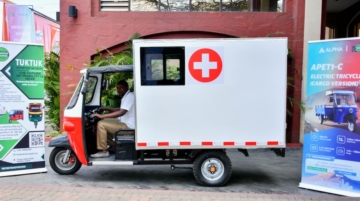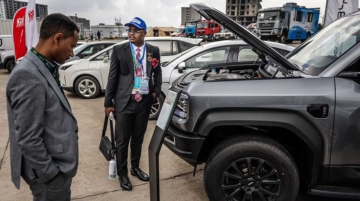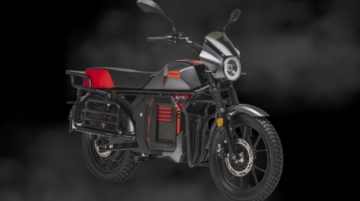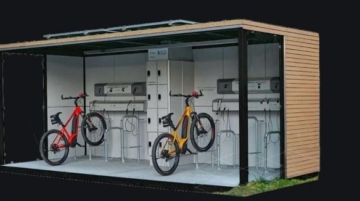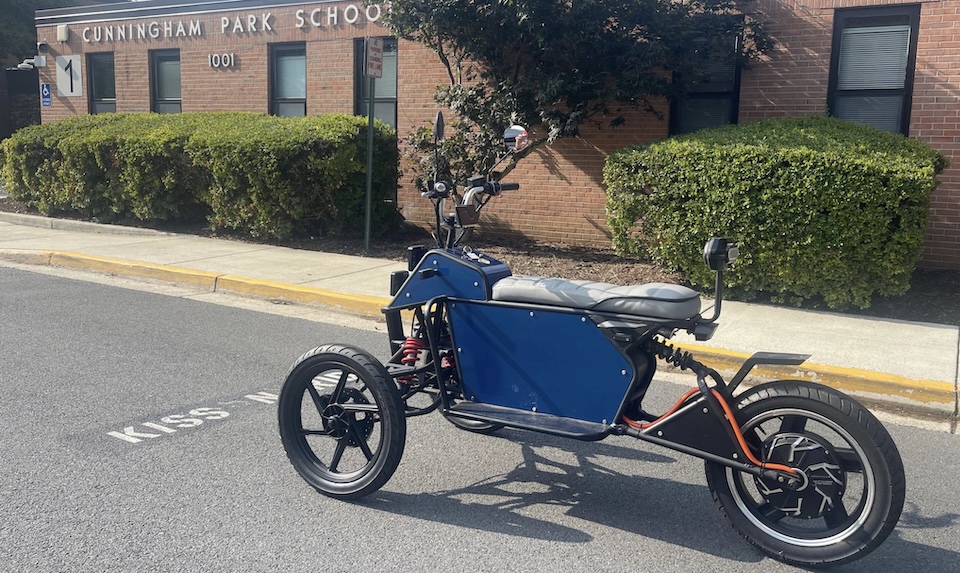
This is a free preview of the upcoming Africa EV Weekly Digest, part of the new CGSP Intelligence service launching in Summer 2025.
BYD is expanding its line-up for overseas markets by giving access to all of its China-developed cars to international buyers. This comes as the company targets one million deliveries outside mainland China this year.
At the same time, Leapmotor has just produced its one millionth all-plug-in car, following the delivery of its extended-range vehicles (EREVs) in 2023.
These milestones indicate that, at some point, these vehicles will end up in African countries, either brand new or as part of the largely second-hand market in these countries. However, it is not all about imports, following the historic milestone of the first 100% made-in-Nigeria EV export to the United States.
This week on EVs in Africa:
SiltechWorld’s Historic First Nigeria-Made EV Export to The U.S.
The first 100% Made-in-Nigeria electric vehicle (EV) exported to the United States marks a historic milestone for the company, which earlier this year custom-built the Elohim-Falcon model for a prominent American.
This milestone underscores the company’s ambitions to expand Nigeria’s footprint in the global EV industry and signals growing confidence in locally manufactured EVs.
Why This Matters: This achievement highlights the deeper dynamics in Africa’s EV landscape. The U.S. trade tiffs with China offer a lifeline to Nigerian EV manufacturers, which could open doors to other opportunities in the EV value chain, benefiting more Nigerians with job creation.
Kenya Breaks Ground on $150 Million Olkaria EV Plant
Backed by an investor from the United Arab Emirates, the Kenyan-based Aquilastar will reportedly leverage a consistent geothermal energy supply, which could give its EV manufacturing a significant price advantage over imported models mostly from China.
Why This Matters: The Kenyan CEO of Aquilastar was arraigned in court in 2017 over allegations of fraud, which raises eyebrows regarding the partnership with the UAE investor and the Kenya Electricity Generating Company (KenGen). This legal complication raises significant questions about the future of the venture.
Egypt, Korea Sign $10M EV Maintenance Vocational Training Deal
This initiative aims to maintain EVs and Compressed Natural Gas (CNG) engines, thereby strengthening Egypt’s technical education and sustainable mobility capacity.
The program will also provide simulation systems for practical learning and equip centers with advanced facilities for EV battery maintenance.
Why This Matters: Building EV maintenance capacity ensures that buyers will not have to wait for overseas technicians. This partnership also highlights complementarities in the EV value chain. EV maintenance will be a multibillion-dollar industry as more buyers shift to e-mobility.
Kenyans Can Now Trade-in Used ICE Cars For an EV
Kenyan car buyers now have the option to trade in their used internal combustion engine (ICE) vehicles for EVs through Peach Cars, a local used car company. Under a new partnership with Moja EV, customers can sell their old cars through Peach and use the proceeds to purchase an EV, often by adding extra cash since electric models are generally more expensive. Peach will also provide financing options to help make the transition more affordable.
Why This Matters: Buying new vehicles in Kenya remains out of reach for many, forcing them to turn to the second-hand vehicle market. This partnership shows how businesses in the EV space are innovating solutions to stay afloat in a country where doing business is also becoming more challenging due to the unpredictable government policies and political disquiet.
Chinese EV Giant Returns to South African Market
Chinese car company Geely is returning to South Africa after a decade-long absence from the market.
The company has reportedly secured 35 dealerships nationwide, aiming for 40 before its official launch.
Transnet, a semi-public logistics company in South Africa, announced the arrival of the first shipment of 147 plug-in electric Geely cars last Friday.
Why This Matters: Geely joins a long list of automakers vying for market share, setting the stage for intense competition based on pricing, features, and other factors.
In context
As EV makers rapidly scale up global deliveries, brand-new and eventually second-hand EVs will enter African markets. That said, exports to the U.S. prove that African countries are not merely passive consumers but active participants in the global EV value chain. Together, these dynamics reflect the dual pathways of Africa’s EV future: imports driven by established players and local innovation responding to unique market realities.
The takeaway: Africa’s EV sector is entering a new phase, and while Chinese automakers like BYD and Leapmotor continue to expand globally, local breakthroughs signal growing manufacturing potential, highlighting the need for more infrastructure, financing, and skills development, which are currently limited across many countries.




